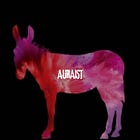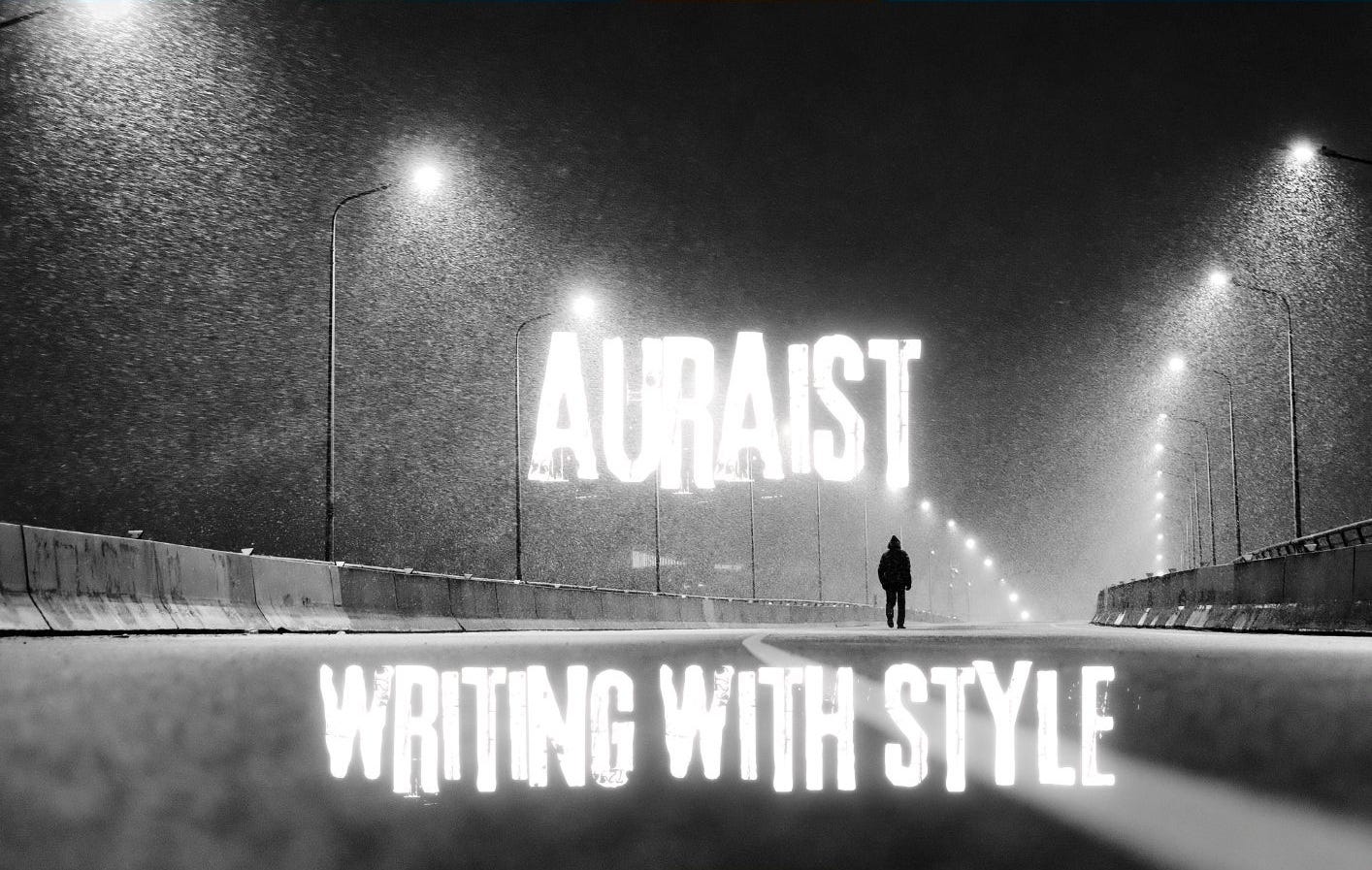The best-written horror and political fiction of the year
Two new picks. Plus Samantha Harvey and Nina Schuyler on prose style.
Coming soon for paid subscribers: the best-written book of the month.
June’s literary prizes Part II
—The Bram Stoker Award for horror fiction will be awarded on June 14th.
‘He realized I wasn’t a Samaritan so much as a fetishist.’
Our pick for the best short-story collection has been named a best horror book of the Year by the New York Times, Esquire, NPR, and Paste.
The best-written work on the shortlist is here »
—The winner of the Orwell Prize for political fiction will be announced on the 25th of June.
‘That fuzzing started in my head at the sight and the sound of him, and at the look of fear on the faces of the people around him, those good people, just being decent, carrying their sadness around quietly; that feeling like my ears and eyes were being strained by something in my brain, being pushed out against the edges of themselves.’
The best-written work on the shortlist is here »
At the above links you’ll find:
The opening pages of our picks. Make up your own mind about the quality of the prose.
The full list of the books we considered.
Information about submitting to Auraist. If we publish your work, we’ll invite you to answer our questions on prose style. Your answers will be considered for inclusion in the published collection of these answers by many of the world’s best writers.
Please consider completing our reader survey or click the Like (heart) button and help spread the word about the only publication set up solely to champion beautiful prose and battle the Replicant Voice.
Best-written books of the century
‘In your early writing career, did you ever consider not working hard on your prose?’
Samantha Harvey
When I first started writing it was all about prose for me; it was about sentences and paragraphs. That’s what I loved writing. Not stories as such, or plots or places or characters. And I imagined that, since I liked writing sentences and paragraphs, I’d be at my happiest writing lots of them, and so I decided to write a novel.
Over time I’ve begun to love, appreciate and be challenged by all aspects of writing because I understand that they’re all expressions of the same thing. But prose – the knocking together of sentences and paragraphs – has abided as the thing that gives me the most pleasure, and this is true of my experience as a reader too. I feel thrilled by good writing. So the urge to work hard on it has always been there, though it doesn’t feel laborious ever.
And I do definitely remember reading certain writers whose prose raised the bar. Thomas Hardy. Marilynne Robinson. Virginia Woolf. José Saramago. In some senses it’s been poetry that has raised, and still raises, my own reading and writing aspirations.
I go to poetry when I’m stuck, when I want to remember how words work, or when I just want to read something brilliant. A cool small evening shrunk to a dog bark and the clank of a/bucket (this is Ted Hughes). How that small evening is pulled in tight around all those k sounds. When I read that line I see and hear and know that evening so vividly it’s like a memory to me, a memory that brings emotions, thoughts of my parents, my childhood, a time we kept horses, my parents’ divorce. That, in fifteen words.
It’s true that my tolerance for what I think of as weak writing has decreased over time - maybe an occupational hazard. I don’t think it’s polished prose I want so much as honest prose, something written from the bones that enters into the bones. But I would say that as my tolerance for not-great writing has fallen, my appreciation of great writing has increased, has soared. I get so much joy from it.
Read on here »
Nina Schuyler
In the beginning, all the macro stuff—character development, plot, point of view, dialogue, subtext—avalanched me. Buried, I was buried under it for years, trying to claw my way through it by understanding it.
But understanding is never enough. You have to try it. And try it again and again because this is going to take a long time to master, if that’s even the right word. This is what makes writing hard, I think. You can learn it, but then you have to do it. The intellect can understand everything, but then there is the rendering. And that delights me. Writing requires all of you.
When I read Mrs. Dalloway by Virginia Woolf, the top of my head blew off and I was never the same. All that she could do with a sentence, all that I was never taught about syntax and whatever else I could not name but wanted to know. I felt her sentences, I felt their rhythm in my body. For years, I’d been a ballet dancer and it was like reading prose that made my legs and arms want to wave in the air and spin.
I’d never taken a creative writing class, only English with its rules and teachers who wanted no repetition, who demanded complete sentences and the standard of subject-verb predicate. And here was Woolf flaunting it all like a little Victorian rebel. It was very attractive. I know nothing, I thought. I want to know what she’s doing, all of it, the names for these fantastic spins and twirls and spirals.
Fortunately, I like to take things apart. At a young age, I took apart a radio to see what was inside (I could not, however, rebuild it). When our television stopped working and the TV repair man came to fix it, I stood by his side so I could see inside. Amazing that those wires and tubes can make an image. I studied law, and now I can take apart negligence and strict liability faster than the radio.
Woolf made me want to crawl inside her sentences and see the wires and tubes, and, most importantly, understand the magic because, though you can learn all the names, that’s not what’s important. What’s important is the rendered meaning. The meaning created for the reader by repeating a word five times. The meaning created by anaphora. The meaning rendered by a left-branching sentence. Woolf inspired me to learn and learn more and more about sentences. It will never be done, this learning, thank god. The bloodflow of inquisitiveness.
And so now, it’s true that pages of poorly written books can feel lifeless to me. I’ve given myself permission to put the book aside.
Marketing and literature are different countries. You go to the first country, which is a place of transaction and monetary exchange and manufactured desire. The slick has to do with conjuring that desire. It didn’t exist a moment before you looked at the magazine with the young woman in a dark red shirt. The slick makes you believe you could become that woman if you had that shirt. You believe it, the way the light glows on her teeth. Her hair seems to swing, and the little baldness that you suffer from, a small patch at the back of your head, will instantly vanish if you have that dark red shirt.
Literature opens its arms, and if it’s got style, these are full, rich arms that invite you into experience. Come on, those arms pull you closer, let’s go on this ride up the mountain, a bit treacherous because of the falling snow, but hold on, because soon it’s going to happen, oh, there, now you feel the snow falling, the cold as one snowflake finds the back of your neck. You hear it with the slight rustle on a coat, see it with the vaporous, ghost-like breath.
Style adds another layer of experience. It comes through the right word order, the right word, even the repetition of a word. Layers and layers of meaning. You walk away from literary style sated, drenched with meaning and maybe even a new way to see the world.
Read on here »
Recommended
Coming soon we have the best-written recent releases, and more authors answer our questions on prose technique. Plus more selections from our subscribers’ submissions.
Paid subscribers will also receive our pick of the best-written book of the month.
Our archive has dozens of author articles on prose style, hundreds of picks from recent releases and prize shortlists, and the best-written books of the century. A paid subscription gives you full access to this archive.
Thanks for reading Auraist and helping to support fine writing.
Sean McNulty










_Orbital_ by Samantha Harvey is a lyrical tour de force. Reading it was like having Carl Sagan's "blue dot" on the page. I have wanted to write you a fan letter since reading it and now I have a way to do just that. Kudos, dear author from my heart to yours! ~ Mary